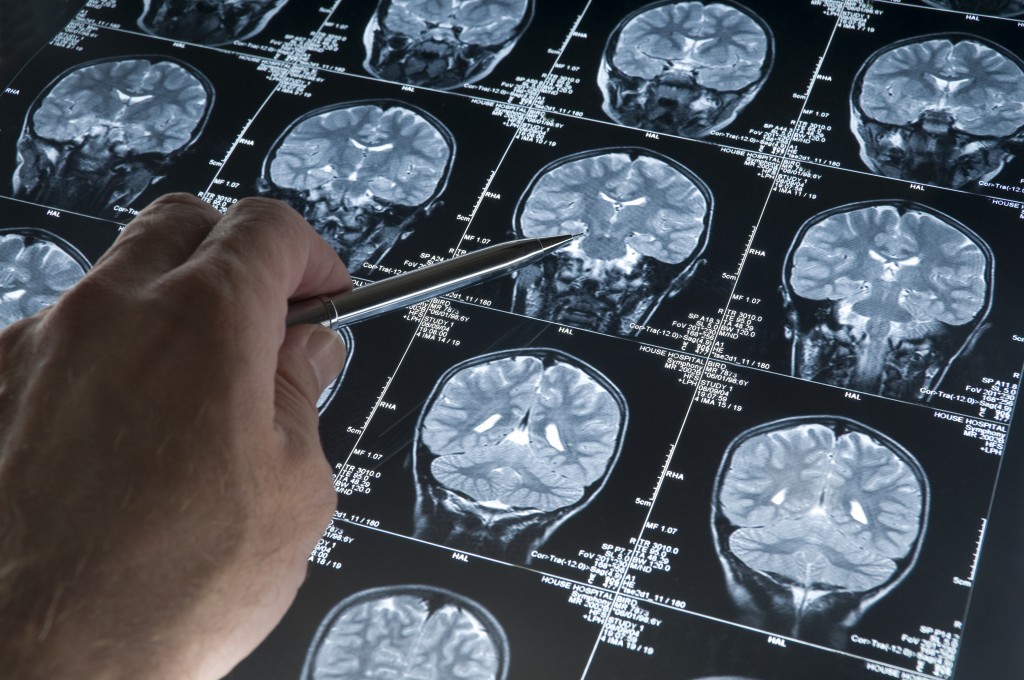 Encephalopathy is the medical term for any disease of the brain that results in altered brain function or structure. There are several causes to this condition, some of which may be attributable to another party’s negligence or wrongdoing. For example, encephalopathy may develop in a patient following a car accident or some other traumatic event. Encephalopathy may also result from birth injury or surgical error, when the oxygen supply to the patient’s brain is reduced or cut off. Additionally, a patient may develop encephalopathy after prolonged exposure to toxic elements in the workplace or other environment.
Encephalopathy is the medical term for any disease of the brain that results in altered brain function or structure. There are several causes to this condition, some of which may be attributable to another party’s negligence or wrongdoing. For example, encephalopathy may develop in a patient following a car accident or some other traumatic event. Encephalopathy may also result from birth injury or surgical error, when the oxygen supply to the patient’s brain is reduced or cut off. Additionally, a patient may develop encephalopathy after prolonged exposure to toxic elements in the workplace or other environment.
If you or a loved one has developed encephalopathy as a result of another party’s negligence or wrongdoing, you may have the legal right to seek compensation for your past and future damages. To learn more about your legal rights, please contact the qualified and experienced brain injury attorneys at The Oshman Firm.
Types of Encephalopathy
There are several types of encephalopathy, which vary by cause and consequences. Some examples of the types of encephalopathy are:
- Static: Characterized by unchanging and permanent brain damage, static encephalopathy can develop as a result of any serious damage or injury to the brain. Common causes can include birth injury, severe head injury, bleeding in the brain, or lack of oxygen to the brain. Static encephalopathy is sometimes diagnosed along with cerebral palsy or other medical conditions.
- Anoxic/Hypoxic: This type of brain disease occurs when the supply of oxygen to the brain is reduced or cut off, which can occur with traumatic brain injury, birth injury, surgical error, and other types of trauma. With anoxic encephalopathy, the brain is permanently damaged and the patient suffers from impairment in mental abilities and consciousness.
- Chronic traumatic: Often affecting boxers and other athletes, chronic traumatic encephalopathy (also called dementia pugilistica) occurs as a result of multiple brain injuries (i.e. multiple successive concussions).
- Hepatic: This type of brain disease occurs as a result of advanced cirrhosis of the liver and other liver disorders.
- Toxic-metabolic: This type of encephalopathy can be caused by exposure to toxic substances such as solvents, industrial chemicals, certain metals, paints, and radiation. Unknown numbers of railroad workers exposed to toxic solvents on the job have subsequently developed toxic encephalopathy. Many of these workers have successfully sought compensation for their losses and suffering. Certain drugs may also cause toxic encephalopathy.
- Uremic: caused by an increase in toxins normally eliminated in the kidneys.
- Wernike’s: caused by thiamine deficiency
- Hypertensive: caused by an acute increase in one’s blood pressure.
- Hashimoto’s: caused by an auto-immune disorder
Symptoms of Encephalopathy
Many of the symptoms of encephalopathy are similar across the varying types. It is characterized typically by a decline in mental abilities and impairments in consciousness. Some of the symptoms of the disease can include:
- Altered mental state
- Dementia
- Memory problems
- Cognitive impairments
- Trouble with concentration
- Lethargy
- Seizures
- Weakness
- Trouble with swallowing
- Speech impairments
- Personality changes
- Progressive loss of consciousness
- Tremor
- Involuntary rapid eye movements (nystagmus)
- Muscle twitching (myoclonus)
- Muscle atrophy
Treatment of Encephalopathy
Treating encephalopathy depends on the underlying cause of the brain disease. In many cases, as with static encephalopathy, the brain damage is permanent and treatment aims at alleviating symptoms and helping a person to perform daily life tasks.
Treatment of encephalopathy can involve various forms of therapy, use of specialized assistive equipment, medications, surgery, specialized programs (i.e. for vision or speech), psychological counseling, special educational programs, and more.
Encephalopathy and the Law
If you or a loved one has developed encephalopathy as a result of traumatic injury, workplace exposure to toxins, surgical error, birth injury, defective drugs, or some other wrongdoing, you may be able to obtain compensation for your losses and suffering. To learn more about encephalopathy and your legal rights, please contact the caring and competent attorneys at The Oshman Firm for a free confidential consultation today.
